
【Research】Does trouble of key occur most frequently at 20:00 on Mondays? Please take care of key, in holiday seasons (X’mas, Year-end, New Year).
【Research】Does trouble of key occur most frequently at 20:00 on Mondays? Please take care of key, in holiday seasons (X’mas, Year-end, New Year).
Contents
▼When lost key happens most frequently? Situation of key trouble differs between apartment and house!
▼More than 70,000 lost key occur annually. Where key troubles occur most frequently?
▼In apartment, does key lost occur most frequently on Saturdays, Sundays, and National holidays?
Let’s take care of keys in the last winter holidays of Heisei.
SHARINGTECHNOLOGY INC. (Head Office : Nakamura-ku, Ngoya-shi, Aichi; Representative Director & CEO: Keisuke Hikiji; Securities Code: 3989; hereinafter referred to as “SHARETECH”) , which operates “Seikatsu 110” , a portal site to solve household problems, conducted a research about 113,852 key trouble cases throughout the country.
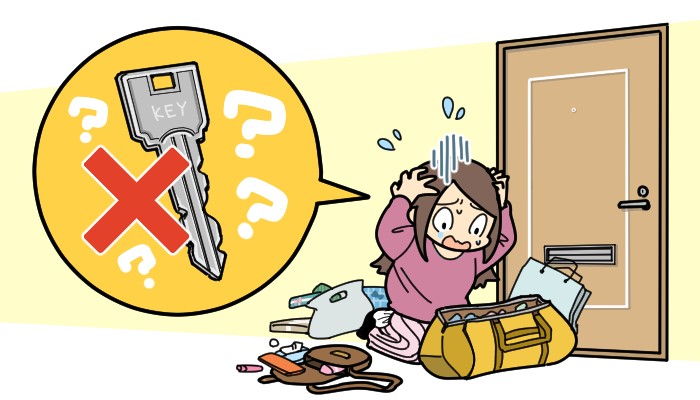
According to National Police Agency’s report (’17), 9,757 thefts by entering front door were reported (*1). Lock of front door is extremely important to prevent theft.
Not only from a point of view of theft prevention, key lost forces you to expend hard time outside home, especially in cold winter season.
(*1) ref: : National Police Agency “ Sumailu Bohan 110”
In case of emergency, you may entrust locksmith. In most cases, locksmith is capable of unlock keys without damaging key hole. SHARETECH received 113,852 key trouble requests during Sep. 2017 to Aug. 2018.
Among these requests, the most frequent cases were 70,385 requests to unlock keys. Especially, requests of unlock “front door” occupied more than 60% (46,815 cases). Therefore, this report conducts research about lost key and request of unlock key.
▼When lost key happens most frequently? Situation of key trouble differs between apartment and house.
First, when is the most frequent time of request to unlock key (the most frequent key trouble cases)?
The below chart shows there exists big difference between apartment and house for time slot to unlock font door.
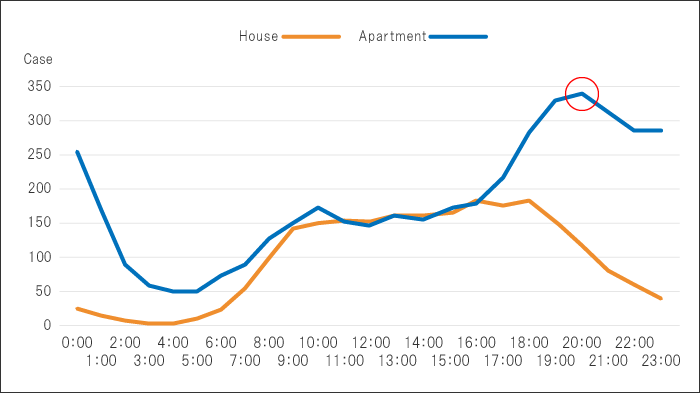
Chart 1 : Time slot of request to unlock front door by type of house
(Source: Unlock Requests to SHARETECH, during Sep.1, ’17 to Aug. 31, ‘2018)
Chart 1 shows that key trouble requests from house have remained at the same level from 9:00-18:00, and afterwards, declined. Meanwhile, requests from apartment have remained at the same level from 9:00-16:00, and peaked at 20:00. Another characteristic of apartment, more than 50 requests are reported at all time zones.
Reason of difference of peak time between 2 types of home
The difference of request peak time between apartment and house may be due to the its family composition.
Single family shares about 18.4% in house resident. Meanwhile, Single family shares about 55.6% in apartment resident (*2). Many of single family are students and members of society, leaving parent’s home. Especially, 96% of single family under 25 years old reside in apartment (*3).
Moreover, ’16 Society fundamental research (Ministry of Public Management, Home Affairs, Posts and Telecommunications) reported that 15 – 24 years old resident’s average coming home hour is 19:52 (*4). This time zone is almost the same as peak time zone of unlock request of single family.
Young generation often come home late, due to various reasons such as side-job, drinking party, over-time work. Peak of key trouble in late night may be resulted from late coming home of these students and members of society.
(*2 : Heisei 27FY National Census (Ministry of Public Management, Home Affairs, Posts and Telecommunications))
(*3 : Heisei 25FY House, Land Research (Ministry of Public Management, Home Affairs, Posts and Telecommunications))
(*4 : Heisei 28FY Society fundamental research (Ministry of Public Management, Home Affairs, Posts and
Telecommunications))
Meanwhile, in houses, single family ratio is relatively low. At night, some other family members probably are at home. Even without keys, someone at home will open the door. Hence, key trouble requests of house are about half of those of apartment.
On the other hand, in the daytime, housewife goes out for various reasons such as side-job, taking children outside for play. Housewife may suffer from key trouble at constant rate, without any other family at home.
▼More than 70,000 lost key occur annually. Where key troubles occur most frequently?
Successive research is about detail of key trouble. Annual 70,385 key trouble reports are broken down in below chart (by apartment, house, etc.).
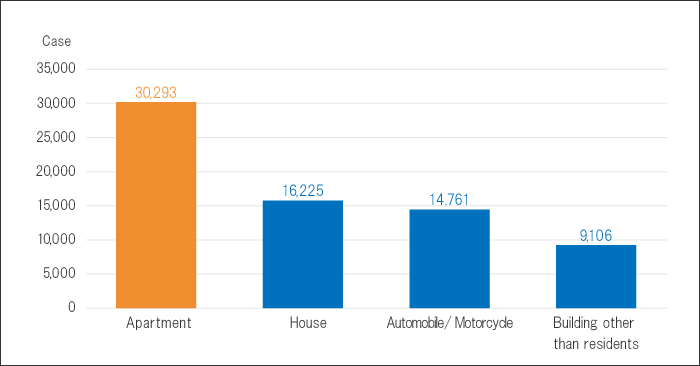
Chart 2 : Key trouble request by locations
Apartment……30,293 cases
House……16,225 cases
Automobile, Motorcycle……14,761 cases
Building other than residents……9,106 cases
(Source: Unlock Requests to SHARETECH, during Sep.1, ’17 to Aug. 31, ‘2018)
Chart 2 shows that key trouble requests from house are around 16,225 cases. Meanwhile, requests from apartment are about twice of 30,293 cases, compared to those from house. Considering that single family dominates in apartment, key trouble request are frequently brought by single family.
Since no other family member opens the door from inside, single family has no other option but employing locksmith.
Also, of the reasons of 10,756 key troubles, 9,533 cases (89%) are lost keys, and the remainder 1,233 cases (11%) are damaged keys. This indicates that lost keys occur every day.
In addition, there exist certain key troubles for automobiles and motorcycles. Recently, automobile is frequently locked with smart key left inside automobiles (In-lock case). In such trouble cases, drivers employ locksmith. Moreover, drivers may often request road service (e.g. JAF). Actual key troubles are assumed much more than reported number in chart 2.
(ref:How does “In-lock” of smart keys occur? Let’s know who is rescue. ・https://www.seikatsu110.jp/key/ky_open/63536/)
▼In apartment, does key lost occur most frequently at 20:00 on Mondays? Let’s take care of keys in the last winter holidays of Heisei.
Successively, research continues for detail of key trouble of apartment. The below chart shows 30,293 key troubles cases’ frequency by day of the week, and hour slot.
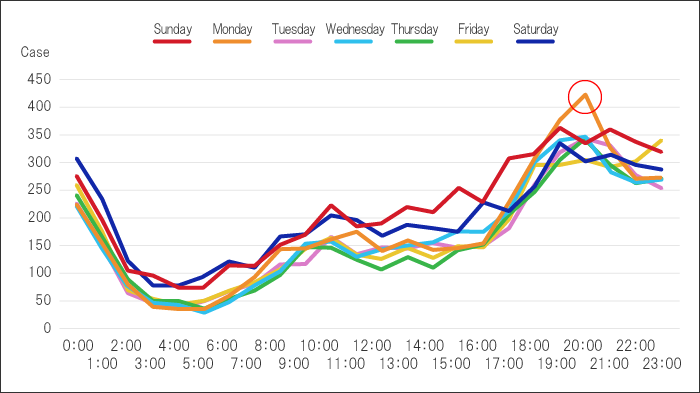
Chart 3 : Key trouble of apartment – frequency by day of the week, hour slot
Sunday……Total 5,208 cases
Monday……Total 4,329 cases
Tuesday……Total 3,958 cases
Wednesday…Total 4,055 cases
Thursday……Total 3,855 cases
Friday ……Total 4,073 cases
Saturday……Total 4,815 cases
(Source: Unlock Requests to SHARETECH, during Sep.1, ’17 to Aug. 31, ‘2018)
The research indicates that key troubles occur most frequently, at “20:00 on Mondays”. Some people may lose keys during in commute to office/school, with less attentiveness just after Saturday/Sunday holidays. Also, 20:00 is often out of service of superintendents of building. Thus, it may contribute to the increase of trouble report.
Meanwhile, overall, trouble requests most frequently occur on Saturdays and Sundays. This may be due to that many people go out on holidays, and lose keys outside.
Next, on what specific day did lost key frequently occur during research period?
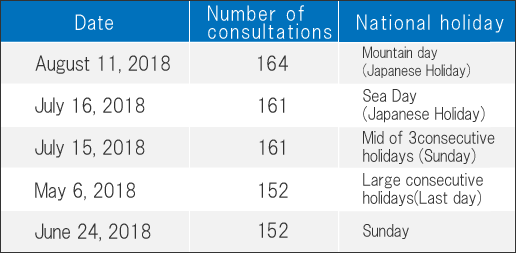
Chart 4 : Worst 5 of specific day for key lost
(Source: Unlock Requests to SHARETECH, during Sep.1, ’17 to Aug. 31, ‘2018)
Chart 4 shows that worst 5 are mostly on national holidays. On holidays, many families go outside, and have more risk of lost keys.
In what prefectures, do key trouble frequently occur?
Above research reports time zone when key troubles frequently occur. Then, is there any relationship between frequency and location? Below chart shows the worst 5 prefectures of the most frequent key troubles.
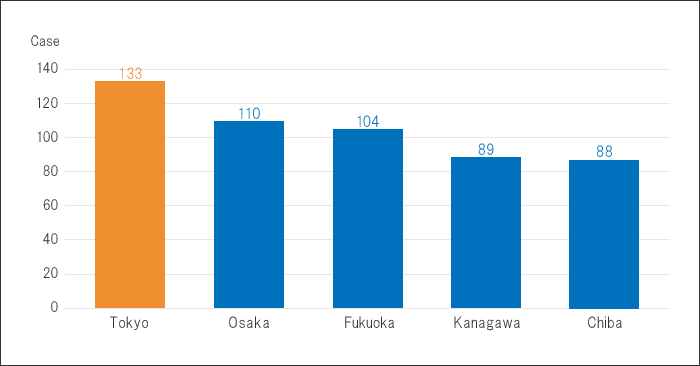
Chart 5 : Worst 5 prefectures of lost key cases (per 100,000 families)
Tokyo……133 cases(Total 9,312 cases)
Osaka……110 cases (Total 4,667 cases)
Fukuoka…104 cases(Total 2,463 cases)
Kanagawa…89 cases(Total 2,480 cases)
Chiba…… 88 cases(Total 3,785 cases)
(Source: Unlock Requests to SHARETECH, during Sep.1, ’17 to Aug. 31, ‘2018)
Chart 5 shows that worst prefectures are large prefectures such as Tokyo and Osaka, and around them. Notably, Fukuoka prefecture (with Fukuoka-shi, the most population increase during Heisei 22 – 27) is next to 2nd place Osaka. (ref: Fukuoka-shi statistic as of Nov. ’18).
Especially, Tokyo occupies about quarter of all lost key troubles throughout the country. In Tokyo, single family rate is relatively high 47.2% (*2), compared to all Japan average 31.4%. Above mentioned correlation between single family and lost key trouble supports the fact that Tokyo is the worst.
How to prevent lost key?
We receive many lost key troubles everyday. Employing locksmith cost expense. Somebody who find a key may possibly abuse.
To avoid such risk, let’s take preventive measures against lost key.
Use of key case, keyholders which make a sound, and storing keys at designated place may be effective to decrease the possibility of lost key (*5).
However, even maximum attentiveness does not completely prevent key lost. In case of emergency, it is
recommended to know nearby locksmith beforehand.
In coming late Dec., many events of the last Heisei are scheduled. Many people will go out for X’mas party, First visit to shrines, Sale, in the crowd. You will notice lost key only when you come home, regardless of day of week, time slot. Please control key and take preventive countermeasure to avoid such a miserable situation of standing outside in the cold winter.
(*5 : Immediate Solution! Countermeasure and expense of lost key(https://www.kagi-rits.jp/kagihunsituji))
<<Web-site of data source in this report>>
▼Sumailu crime prevention 110-ban
https://www.npa.go.jp/safetylife/seianki26/top.html
▼Key 110-ban
https://www.kagi-rits.jp/
▼Seikatsu 110-ban
https://www.seikatsu110.jp/
▼Ministry of Public Management, Home Affairs, Posts and Telecommunications, Statistics Div.
http://www.stat.go.jp/index.html
▼Fukuoka-shi
http://www.city.fukuoka.lg.jp/index.html
<<ref.>>
(2018/12/26) 【Research】Does trouble of key occur most frequently at 20:00 on Mondays? Please take care of key, in holiday seasons (X’mas, Year-end, New Year).
https://www.seikatsu110.jp/key/ky_repair/127153/
-
Notice Regarding Revision of Dividend Forecast (increase) of the fiscal year ending September 30, 2025
-
Announcement of Financial Results Report and Briefing Documents of 2Q ending September 2025.
-
Announcement of Financial Results Report and Briefing Documents of 1Q ending September 2025.
-
Announcement of Financial Results Report and Briefing Documents of Fiscal Year ending September 2024.
-
Announcement of Financial Results Report and Briefing Documents of 3Q ending September 2024.
-
Notice Regarding Revision of Dividend Forecast (First Dividend) of the fiscal year ending September 30, 2024


